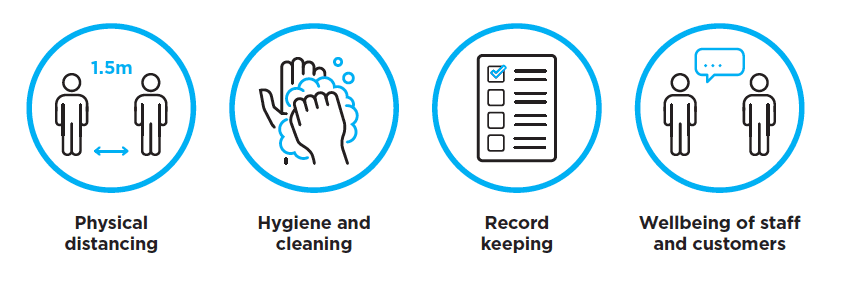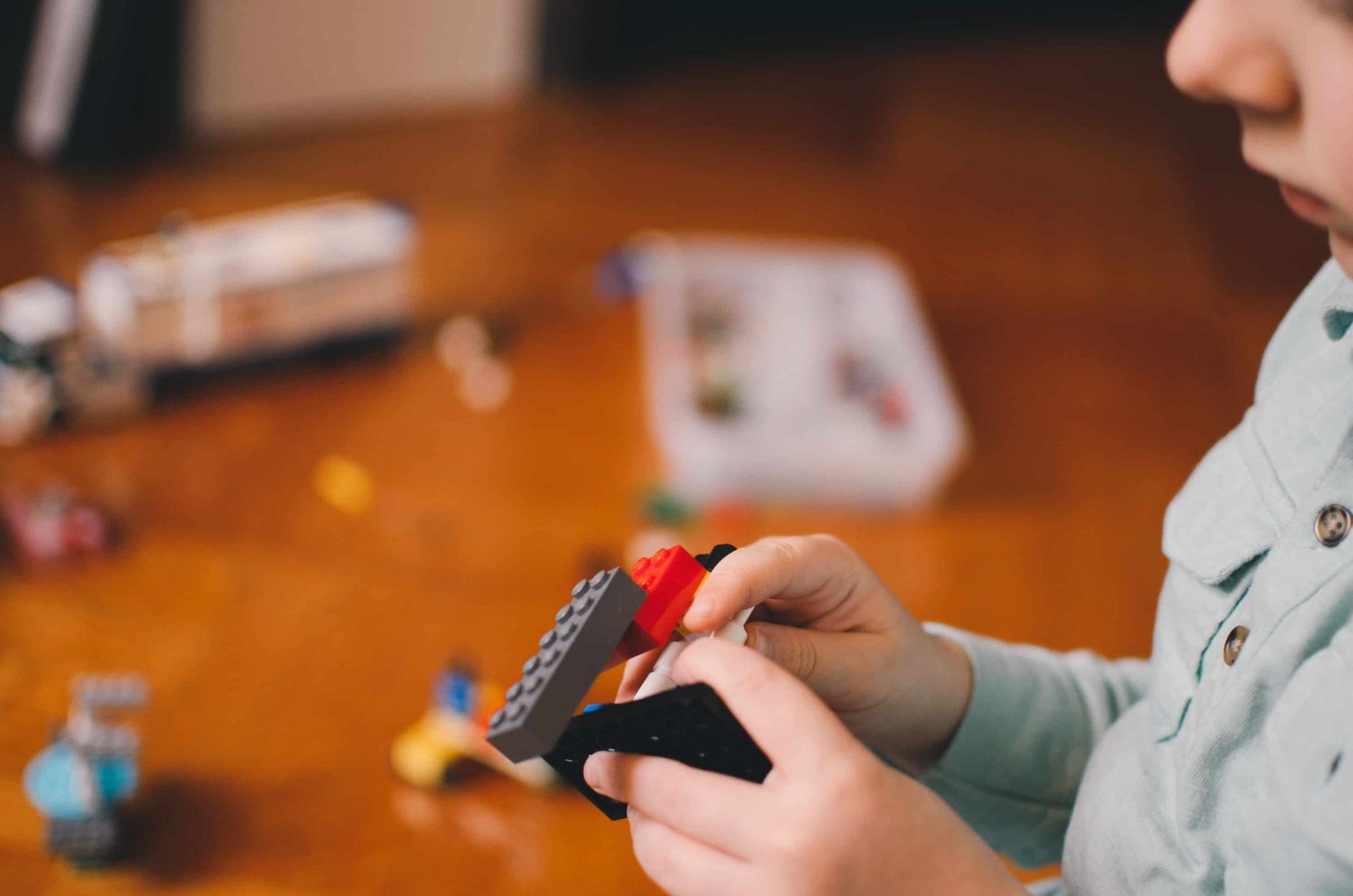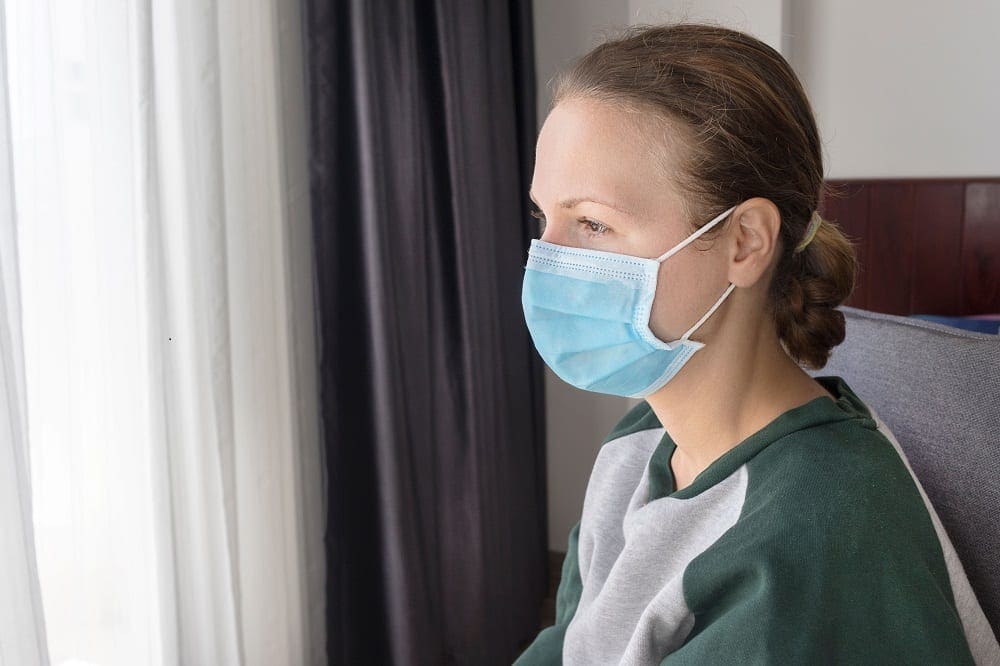Now that Australia is opening up again and people are heading back to work, it is important that we all go back to the office, and any place of work, in a safe and responsible manner. Freedman & Gopalan Solicitors has registered our COVID Safety Plan and been certified as a COVID Safe Business.
COVID-19 Safety Plans help to protect staff, customers and visitors as NSW gets back to business. Some businesses will need to complete a COVID-19 Safety Plan under the public health orders, but you can also voluntarily complete one.
As a business owner or employer, what should I be doing?
To become a COVID Safe business, go to the NSW Government Guide on COVID Safe Businesses. Here, you will be guided through making a COVID-19 Safety Plan, depending on what environment your business operates in. Options include agriculture, libraries, restaurants and cafes, sports and recreation facilities, and office environments.
In an office environment, it is important to follow the guidelines in the following areas:
- Staff and visitor wellbeing. No one should be attending work if they are unwell, and this should be communicated clearly to everyone who will be coming into the office
- Physical distancing. Only one person can safety occupy a 4 metre squared space. Thus, it is important to use flexible working arrangements where possible, use telephone or video platforms for essential meetings, and ensure people maintain 1.5 metre physical distancing at all times.
- Hygiene and cleaning. Surfaces should be regularly disinfected and hand sanitiser should be available at multiple locations throughout the workplace
- Record keeping. The business must keep a record of name and contact details of all staff, volunteers, visitors and contractors attending the office, for the purposes of tracing COVID-19 infections. These records must be kept for at least 28 days and stored confidentially and securely.
These are the guidelines that Freedman & Gopalan Solicitors will be following as we start going back to the office. The guidelines in your workplace may be different, and so it is important that you complete a COVID-19 Safety Plan and make it available for all your staff.
As an employee, how can I ensure that it is safe for me to return to work?
If you are unsure whether your employer has completed a COVID Safety Plan, speak with them about it. It may be that a Plan has been put in place, but just not made publicly available. If your employer has a informal plan on how to keep employees safe, encourage them to go to this website: https://www.nsw.gov.au/covid-19/covid-safe-businesses, and register as a COVID Safe Business. It only takes a few minutes, and can help protect our community from the spread of COVID, as well as providing peace of mind to employees and visitors.
Part of being a COVID Safe Business is ongoing consultation with staff, visitors and clients, as well as feedback on how we are going. If you have any questions or would like to provide us with feedback, please contact us via 02 8917 8700 or send us an email on reception@freedmangopalan.com.au.
High-conflict situations post-separation can lead to the child preferring to spend time only with one parent, or even outright refusing to spend time with or contact the other parent. If this is the result of one parent deliberating alienating the child from the other parent, it is called parental alienation. If this occurs naturally, without manipulation by any parent, it will not be parental alienation.
Parental alienation is the specific process by which a child becomes estranged from one parent as a result of the psychological manipulation of the other parent. It can be a grave concern for some parents who are parenting after separation, and this manipulation can result in a fracture between the parent-child relationship that needs to be addressed immediately.
Examples of parental alienation include:
- Making the child unavailable for the other parent's visits, or visits from grandparents and other family members connected with that parent,
- Deliberately speaking ill of the other parent,
- Sharing unnecessary details of the separation/divorce, or suggesting to the child without justification that the other parent is abusive,
- Rejected the other parent's gifts and presents,
- Making important decisions about the child without consulting the other parent, and
- Infringing on the other parent's time with the child.
Parental alienation is both a legal issue and one which needs to be addressed with family therapists and psychologists with experience in these situations. Agreeing the terms of how parenting after separation will operate, with binding Consent Orders, and discussing these issues with your ex-partner is important in terms of not letting the situation go this far.
If you are parenting after separation and feel that the other parent is undertaking emotionally manipulative tactics to influence your child, please contact our offices, and we will assist you in understanding these personality traits and provide you with assistance and support, as well as in depth practical legal advice.
There are many reasons why a parent after separation may wish to relocate, or move cities, with their child, including financial stress, employment opportunities and the need to be close to family support. However, relocation is a difficult issue when parenting after separation, as both the child's best interests and the interests of the ex-partner come into play.
Parents may be able to reach an consensual agreement that one parent will relocate with the child while the other parent takes care of the child for longer periods of time in the school holidays and throughout the year. Alternately, both parents may relocate, but continue to be separated. If such an agreement is reached, it is highly advisable that the parties file Consent Orders in court, that outline the terms of the agreement reached.
If there is no agreement, the Court's permission will need to be sought. The Court is generally reluctant to give permission for relocation, given the non-relocating parent will lose significant time with the child. However, if the Court finds adequate reasons for believe the child's best interests are in relocation, then the Court may make the Orders, with arrangements for the other parent to spend set time with the child. The relocating parent has the burden of demonstrating the child's best interests are with relocation, as this is the paramount consideration in the eyes of the Court.
When considering making Orders, the Court will also consider:
- The child's interest in having a meaningful relationship with both parents,
- Protecting the child from physiological or psychological harm, or being exposed to abuse, neglect and/or family violence,
- The views of the child,
- The child's relationship with each parent, and other family members such as grandparents, aunt, uncles and cousins,
- Maturity, sex, lifestyle and background of the parents and child
- Any other relevant factors
If you would like assisting in relation to you or your ex-partner seeking to relocate with your child or children, please do not hesitate to contact Freedman & Gopalan Solicitors to discuss your options.
As a driver within NSW, it is vital that you are aware of your rights and obligations.
Where a driver does not comply with the roadside rules, they may be subject to the Demerit Points Scheme.
What is the Demerit Points Scheme?
This scheme is a national program that allocates penalty points for driving offences. Along with financial penalties, demerit points provide a strong incentive to drive within the law.
How demerit points work?
The demerit point scheme is administered by NSW Roads and Maritime Services. It allocates penalties, which are known as demerit points, for certain driving offences. If you accumulate a specified number of demerit points within a three year period, your licence will be suspended.
How many demerit points are you entitled to?
The amount of demerit points you have depends on the licence you hold.
a. Normal unrestricted drivers licence
Generally, unrestricted licence holders have a demerit point limit of 13 points within a three year period.
You are eligible to hold an unrestricted licence once you complete the following 6 steps over the course of 4 years: -
- You must pass the Driver Knowledge Test to get your learner licence (L’s);
-
(a) If you are under 25, you must complete 120 hours of supervised driving practice and hold drivers licence for 10 months
(b) If you are over 25, you can proceed to step 3. - You must attempt the Hazard Perception Test (HPT). This is a computer-based touch screen test that measures your ability to recognise potentially dangerous situations on the road and respond appropriately
(a) If you are under 25, you need to hold your learner licence for at least 12 months and complete 120 hours of supervised driving practice, including 20 hours at night, before moving to step 4.
(b) If you are over 25, you can go straight to step 4 after you pass the HPT - You must then book and pass the driving test to get your provisional P1 (red) licence). You will need to hold your P1 licence for at least 12 months before you can progress to step 5.
- You are then eligible to apply to a provisional P2 (green) licence. You need to hold your P2 licence for at least 24 months before you can progress to step 6.
- Once the above steps are completed, you are then eligible to progress to a full unrestricted licence.
- Note: P2 drivers who receive a suspension for unsafe driving behaviour must stay on their P2 licence for an extra 6 months for every suspension they receive.
b. Professional Drivers
Professional drivers licence holders have a demerit point limit of 14 points within a three year period.
You are eligible for a professional drivers licence if you hold an unrestricted license and you are a:
- Motor vehicle driver who transports goods either inter and/or intra state, or
- Bus, taxi or hire car driver who holds an authority issued under the Passenger Transport Act 1990.
The following conditions apply: -
- You must earn an income for the driving work and drive more than 20 hours per week. Volunteer drivers do not qualify.
- You must have been a professional driver on the date of your last demerit point offence and on the date the notice of suspension was given.
You do not qualify as a professional driver if: -
- Driving a motor vehicle is incidental to your primary work such as a tradesperson, salesperson, tow truck operator etc
- Your primary work is driving an implement (bulldozer, road roller etc)
- You have not held a licence for more than 6 months because it expired or was disqualified
- Your primary work is personally driving a motor vehicle but the driving is not for the purpose of transporting goods
- Your primary work is personally driving a motor vehicle to transport people but the driving is not for the purpose of transport
- Your driving is only to transport yourself to a place of work or education
With COVID-19 related restrictions and lockdown impositions, many of us have been working from home. How has this affected your work? Have you been able to be completely productive? With this huge change that has been imposed on society, people are finding it difficult to in fact work from home. Being constantly motivated, adhering to deadlines, meeting targets without access to the right facilities are all imposing additional hurdles on every employee.
We would like to share some tips to assist you to ensure that you get through a day of productive work: -
1. Have defined hours.
By committing solely towards those demarcated hours to do nothing else but work definitely helps. Set aside all other distractions that can come with working from home, and do not try to juggle work and home duties during that time.
2. Have regular team meetings or meetings with your boss or colleagues.
This is so that there is a mode of communication, constant flow of ideas and expectations are set so that each one will be responsible for the tasks allocated to them, and there is no overflow of confusion of task allocation.
3. Have a to do list or have other reliable applications such as Google Sheets or Microsoft Teams.
Relying on applications definitely enables you to ensure that you do not miss out on your to do tasks, apart from having a sense of achievement once the same has completed.
4. Structure your day like how you would in the office.
When working from home, remember that you are your own personal manager. Use other tools and follow schedules just like you would otherwise do in the office.
5. Choose a dedicated work area.
It will certainly assist if you dedicate a specific room or surface in your home to work on a daily basis, and you could call this consistently ‘your workspace’. It certainly helps you to get into the right frame of mind.
6. Commit yourself to doing more.
It would help if you slightly overcommit yourself on what you will deliver each day. This forces you to in fact attain a goal that you will force to deliver to yourself as it would force to keep you honest even if there are other temptations that come along during the day like Netflix or Prime.
7. Use technology to stay connected.
Rely upon instant messaging or video conferencing tools in order to make sure that you remain in touch with your co-workers, colleagues or clients, and it helps make remote meeting more productive.
8. Take clear breaks.
It is easy to get distracted while you are at home, and accordingly, make sure that you stick to your work hours and scheduled and the plan for the day and that you force yourself to take breaks only when scheduled.
With the current restrictions in place due to the COVID-19 epidemic, on 22 April 2020, the NSW Government has introduced new temporary regulations in order to reduce the face-to-face contact between the people who require important legal documentation to be witnessed.
The Attorney General, acknowledging the difficulty of having legal documents witnessed with the COVID-19 restrictions, has announced that a document is able to be witnessed by a legally authorised person, such as a Justice of the Peace, a solicitor or barrister, via electronic means including but not limited to Skype, Zoom and FaceTime.
Under the new regulation, the witness must see the person executing the document in real time to confirm that signature is legitimate, and also has provided the appropriate forms of identification verifying a person’s identity. Upon signing the document, a scanned copy can then be forwarded to the relevant witness for their execution.
The ordinary process requires that a witness must observe the person physically signing the document before them prior to witnessing the document themselves. Naturally, this form of witnessing a document remains valid while the new temporary regulation is in place.
This will reduce physical interactions and enable people to stay at home, whilst ensuring that important legal matters are attended to.
The temporary measures will continue to be in place pending the reviewal of the COVID-19 restrictions by the Government.
Documents that require witnessing by a legal professional or Justice of the Peace include Wills, Powers of Attorney and Statutory Declarations.
The Family Court of Australia has also considered the requirement of parties to execute important Court Documents in legal proceedings, such as Applications, Affidavits and Consent Orders, and implemented measures allowing for parties to electronically execute documents, which are now required to be filed with the Court online. To find out more, click here.
Contact our office to find out more via 02 8917 8700 or by emailing reception@freedmangopalan.com.au.
A Costs Agreement and Disclosure Statement is the initial documentation that a client will receive from law practice.
It is advisable to peruse the documentation carefully prior to executing and returning it to your solicitor. The said documentation governs how professional fees will be calculated for the work done, and when/if the disbursements incurred by the lawyer will be payable by the client.
A Cost Disclosure is to be enclosed in the Costs agreement by every law practice. The law practice must disclose details of its costs to you in writing before commencing any work for you. If you have a matter that requires urgent attention, then the law practice must disclose details of its costs to you as soon as is practicable.
There are different types of Costs Agreements. The most common types are the following;
1. Costs Agreement which provides for costs to be paid on a ‘time costing’ basis, that is, by setting out hourly rates which will apply by reference to the time taken to perform work on your matter.
2. A Fixed Fee agreement, which sets out a fixed amount for carrying out the work described in the agreement (which may be for a stage of the matter or for the whole of the matter).
3. No win- No Fee agreement, also known as Conditional costs agreement, which provides that the payment of some or all of the legal costs is conditional upon the successful outcome of the matter to which the costs relate.
In New South Wales, Costs Agreements and Disclosure Statements issued by lawyers are governed by the Legal Profession Uniform Law Application Act 2014, Legal Profession Uniform Law Application Regulations 2015 and the Legal Profession Uniform General Rules 2015. 42553
A few of the rights you have and that must be disclosed in your costs agreement are as follows;
1. Negotiate the costs agreement with your law practice;
2. To receive a bill of costs from your law practice;
3. To request an itemised bill of costs after you receive a lump sum bill from your law practice;
4. To negotiate the billing method with your law practice;
5. To request from your lawyer written reports about the progress of your matter and the costs incurred in your matter;
6. To apply for costs to be assessed within 12 months if you are unhappy with the costs;
7. To seek the assistance of the designated local regulatory authority in the event of a dispute about legal costs;
8. To accept or reject any offer the law practice makes for an interstate costs law to apply to your matter.
Kindly ensure that the Costs and Disclosure Agreement is thoroughly perused and understood and if you have any issues please do not hesitate to contact our offices via telephone on 02 8917 8700.
In the highly unusual circumstances now faced by Australian parents and carers, COVID-19 is having a significant impact upon public services. This includes the operation of the Court and the family law system. For example, there may be situations that arise which make strict compliance with court orders very difficult, if not, impossible.
For instance, compliance is challenged where orders stipulate that contact with a parent should occur at a designated contact centre, which has since been closed due to COVID-19. With the closure of many state borders, separated parents who live in different states may also find it difficult to comply with their shared parental responsibilities. In addition, there may be genuine safety issues that have arisen where parents wish to restrict the movement of a child from one house to another, in order to reduce the risk of that child’s exposure to the virus.
We then ask, what does this mean for you? How does COVID-19 affect your Parenting Orders, and what are your responsibilities in these unusual times?
Attempting to offer some guidance on this issue, the Law Council of Australia has recently published a top 10 guide for separated parents during COVID-19.
According to the guide: -
1. Parents must still meet their obligations where regulated by a Court Order, unless there is a reasonable excuse for non-compliance;
2. If arrangements become unclear or cannot be met (e.g. quarantine, travel restrictions, or because schools are closed), parents must use common sense to find solutions to challenges;
3. If a change in the parenting matter is anticipated, a parent must give the other parent plenty of notice and explanations so that adjustments can be made;
4. In the event that time arrangements with the other parent cannot occur, then parents are required to find other ways to maintain the connection with the child. This could include digital communications;
5. Parents are expected to make accommodations to the other parent, only if these accommodations are possible and in the best interests of the child;
6. Parents should strive to be open in their communication with the other party about the things you will each do in your respective households to limit the child’s exposure to the virus;
7. At this time, more than ever, there is a need for parents to find compromise in the interests of the child, so it is vital for parents to be solution focused and to be respectful and compassionate in all engagements;
8. There is a very high possibility that some people may lose their job or experience a reduction in their income during this period. Therefore, parents are expected to be understanding of the financial position and financial worry of the other parent, and should work together to find a solution;
9. Understanding that this situation will not resolve overnight, the Family Law Council recognises that parents will experience higher levels of stress, which will lead to family conflict. It is advised that parents remain calm and offer compassion when engaging with the other parent; and
10. Parents are encouraged to remember that they are the beacon for their children during this uncertain time.
Whilst we can appreciate that these are unprecedented times, we can expect further guidance to be delivered as more is known about the COVID-19. This creates a problem in itself as the information is constantly changing. Parents are therefore required to stay informed about their legal rights and responsibilities.
If you are concerned about COVID-19 and the impact it is having on your family law matter, please do not hesitate to contact us. Freedman and Gopalan Solicitors continue to be able to advise all clients experiencing family law issues by telephone, and arrangements can be made for video conferencing when appropriate.
Unfortunately, the current COVID-19 situation and the need to self-isolate at home has resulted in a surge of domestic violence incidents where partners in abusive relationships are living in greater proximity to their abusers than ever before. Below are some tips on what you can do: -
- If you or someone you know is impacted by domestic violence, you can contact 1800RESPECT which is a 24-hour national sexual assault, family and domestic violence counselling line for all Australians who are at risk or experiencing domestic violence.
- Of course, if you are in immediate danger, call 000 for Police or Ambulance.
- In NSW, the Department of Communities and Justice can assist you with accommodation. Due to the current situation, there have also been changes made to residential tenancy laws which in some cases allows you to terminate a lease without penalty if you are experiencing family violence. Further information can be found here: -
https://www.tenants.org.au/factsheet-12-domestic-violence
- Remember to always stay in touch with friends and family, even if you can only do so via text message or social media.
- Should the situation escalate, and you need to contact the Police, you may be able to obtain Apprehended Domestic Violence Order which is a legal document that will protect you from family violence.
- Your mental health and wellbeing are important during these times. A list of services and support contacts can be found here: -
https://www.health.nsw.gov.au/mentalhealth/services/Pages/support-contact-list.aspx
If you are concerned about your legal rights in a relationship, whether it be issues relating to domestic violence, property settlement or child custody, please do not hesitate to contact Freedman & Gopalan Solicitor on 02 8917 8700 for advice.










